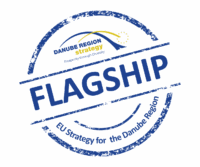Project, process, network, platform; in preparation
EUSDR Priority Area(s): PA 3 Culture & Tourism
The main output of the project will be the establishment of the Danube Tourism Laboratories (DaTuLabs). Activities of the Labs will include but not be limited to:
- the development of an online stakeholder’s cooperation platform (Sustainable Tourism Resource Centre),
- drafting of the Transnational Danube Tourism Roadmap as support to the long-term destination development,
- use of the participatory tools for planning,
- co-designing tourism initiatives and
- fostering eco-friendly smart tourism initiatives.
The project will identify and engage a wide range of stakeholders, including tourism policymakers, tourism boards, academia, businesses, local communities, and visitors. By providing stakeholders with the necessary tools, knowledge, and resources, the project aims to empower them to make informed decisions and take collaborative action towards sustainable tourism development. By combining cutting-edge technologies, participatory approaches, and cross-border cooperation, the project aims to unlock the socioeconomic potential of the Danube Region while preserving its natural and cultural heritage for future generations.
Objectives: The overall objective of the project is to improve sustainability and resilience in the tourism sector in the Danube Region through systematic, timely, and regular monitoring of tourism performance and its impact on sustainable growth. By fostering cross-border and transnational cooperation, the project seeks to activate destinations’ responsible management of natural and cultural resources and reduce regional disparities caused by peripheral locations on state borders. The expected change from the project is to establish a framework for efficient planning and cooperation, valorise joint resources and skills, form joint structures of cross-border cooperation, promote good practices in the tourism field, and demonstrate ways in which tourism can contribute to social and economic cohesion in the Region.
Need and (expected) impact: The project aims to address the common challenge of sustainable tourism development in the Danube Region, which encompasses diverse landscapes, cultural heritage sites, and communities across multiple countries. Despite its immense potential, the region faces several common challenges, including the lack of relevant data and indicators for sustainable tourism planning, inadequate cross-border cooperation and management structures, disparities in socio economic level of development along the Danube as well as the risk of over-commercialisation and degradation of cultural and natural resources.
Macro-regional dimension: The project will take a transnational approach to address the complex and interconnected challenges of sustainable tourism development in the Danube Region. A transnational approach is needed to overcome differences in administrative structures, decision-making processes, and cultural contexts across borders. By fostering collaboration and shared responsibility among stakeholders from different countries, the project aims to maximise the impact of its initiatives and create lasting benefits for the Danube Region as a whole. At the moment, partners from ten countries are collaborating directly in the project planning and proposal submitting to the 2nd Interreg Danube Region Programme call (Austria, Czechia, Slovakia, Hungary, Croatia, Serbia, Romania, Bulgaria, Ukraine with associated partners from the Republic of Moldova).
The innovative and original project approach is to capitalise on participatory approaches, innovation and digitalisation, emphasising sustainability in every step. Development and establishment of Tourism Labs as an innovative solution will allow the destinations directly covered within the initial set of pilot areas as well as others in the Danube Region to address the challenges of sustainable tourism planning and development. By involving a wide group of stakeholders and strong local communities focusing on the co-design and co-creation of tourism initiatives, the project aims to ensure that solutions are tailored to local needs and opportunities and bring well-being to citizens on the local, regional and national level.
Stakeholders involved: Representatives of NGOs, academia, and representatives of the entities at the local/regional/national level related to coordinated domains of EUSDR PA 3.
Budget and Funding: Interreg Danube Region Programme, Horizon 2020, Interreg Europe
Contact: Ms Irina Cozma, Priority Area Coordinator, PA 3, Ministry of Development, Public Works and Administration Romania,



